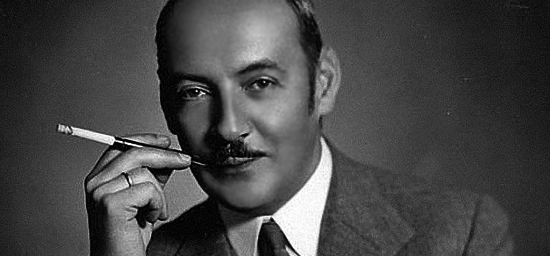We’re all familiar with Hermann Goering, the bulky, self-indulgent Nazi who commanded the Luftwaffe, played a role in implementing the Holocaust and served as Adolf Hitler’s second in command. But Goering’s anti-Nazi brother, Albert, remains a cipher, an unknown quantity. Or at least until now. Thanks to Linda Parkhurst’s documentary, Goering’s Last Secret, available on the Netflix streaming service, Albert becomes a person in his own right.
Albert, we learn, not only opposed Nazism on moral grounds, but was a fighter against fascism, risking life and limb to save 34 Jews and Christians whose lives may have been cut short had it not been for his humanistic convictions and unusual courage.

The film, based on a book by journalist William Hastings Burke, portrays Albert as a heroic figure who was the polar opposite of his prominent brother. “Unsympathetic” to his brother’s racist ideas, he used his relationship with Hermann to help people in distress.
As Burke observes, “Albert was righting the wrongs of his brother.”
Regrettably, Burke makes no real attempt to explain why Albert was so different than Hermann. He suggests that Albert may have been the offspring of an affair between his mother and Ritter Hermann von Epenstein, a physician of partial Jewish origin. But he doesn’t bother elaborating. Nor does Burke offer an explanation why Albert was disgusted with Nazism.
Albert moved to Vienna in the late 1930s to work in the film industry, and it was there that he was first arrested for helping a persecuted Jew. Trading on his surname, he was soon released.
Albert set up a bank account in neutral Lisbon to assist Jews attempting to leave Europe. But here again, the details are scarce.
During the war, Albert lived a nomadic life, residing in Rome, Prague, Budapest and Bucharest. Burke fixes his gaze on Albert’s activities in Prague, where he worked for Skoda, a Czech manufacturer of automobiles and arms. Without elaboration, he suggests that Albert passed on information to the Czech resistance movement. By then, we’re told, the Gestapo had a bulging and incriminating file on Albert.
To help people in danger, Albert began writing letters to the Nazi authorities, signing each letter with the name Goering. Using this ploy, he rescued a Czech doctor from a concentration camp. According to Burke, Albert may have secured the release of several Jews from the Theresienstadt camp by commandeering military vehicles.

By 1944, the Gestapo had a warrant for Albert’s arrest, but it was quashed by Hermann, who advised him to lay low in Salzburg, an Austrian town close to the German border.
After the war, tainted by his association with Hermann, Albert was arrested and thrown into prison. To clear his name, he compiled a list of 34 people he had assisted during the Nazi era. Nonetheless, Albert’s notorious surname worked against him during the postwar period.
He died penniless in 1966 at the age of 71.
Burke has asked Yad Vashem, the Holocaust memorial and research center in Jerusalem, to recognize Albert as a Righteous Gentile. The request is under consideration.
Regardless of Yad Vashem’s decision, Albert has already proven his credentials as a hero, as Goering’s Last Secret points out.